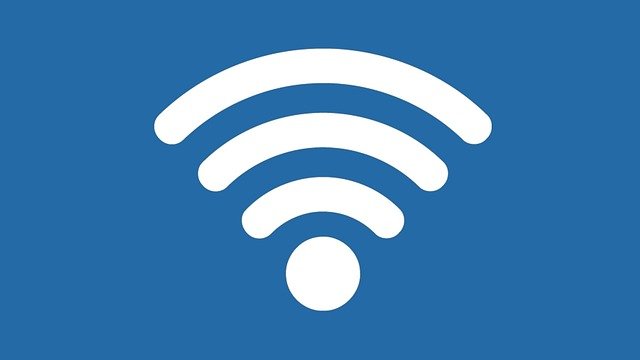Understand How Housing Assistance Programs Support Veteran
Veterans face unique challenges when seeking stable housing after their military service. Housing assistance programs specifically designed for veterans offer crucial support to those who have served our country. These programs provide various benefits from home loans with favorable terms to emergency housing solutions for veterans facing homelessness. Understanding these resources can significantly impact a veteran's transition to civilian life and long-term financial stability.

What Are Veteran Housing Assistance Programs?
Veteran housing assistance programs encompass a range of federal, state, and nonprofit initiatives designed to help veterans secure stable housing. The Department of Veterans Affairs (VA) administers many of these programs, working alongside the Department of Housing and Urban Development (HUD) and various community organizations.
These programs generally fall into several categories: home purchase assistance through the VA Home Loan program, rental assistance, homelessness prevention, and housing adaptation grants for disabled veterans. Each program addresses different housing needs while recognizing the service and sacrifice veterans have made. Eligibility typically depends on factors such as discharge status, length of service, disability rating, and sometimes income level.
VA Home Loan Benefits
The VA Home Loan program stands as one of the most valuable housing benefits available to veterans. Unlike conventional mortgages, VA loans don’t require a down payment in most cases, eliminating a significant barrier to homeownership. Veterans also benefit from competitive interest rates and the absence of private mortgage insurance, resulting in lower monthly payments.
Another key advantage is the VA’s limitation on closing costs that veterans can pay, potentially saving thousands of dollars during the home-buying process. Additionally, the VA offers safeguards against foreclosure through specialized assistance programs for veterans experiencing financial difficulties. The certificate of eligibility (COE) serves as the starting point for accessing these benefits, with most veterans who have served during peacetime for at least 181 days or during wartime for 90 days qualifying for this program.
Rental Assistance for Veterans
For veterans who aren’t ready to purchase a home or prefer renting, several rental assistance programs exist. The HUD-VASH (Veterans Affairs Supportive Housing) program combines Housing Choice Vouchers from HUD with case management and clinical services provided by the VA. This program specifically targets veterans experiencing homelessness, offering both housing subsidies and supportive services.
The Supportive Services for Veteran Families (SSVF) program provides temporary financial assistance for rent, utilities, security deposits, and moving costs. Some veterans may also qualify for general housing programs like the Housing Choice Voucher Program (Section 8), which isn’t veteran-specific but can significantly reduce rental costs for qualifying low-income veterans.
These rental assistance programs typically prioritize veterans with disabilities, families with children, elderly veterans, and those at risk of homelessness, ensuring resources reach those with the greatest need.
Homelessness Prevention Programs
Veteran homelessness remains a serious concern, with thousands of veterans experiencing housing insecurity annually. The VA has established comprehensive programs to address this issue through preventative measures and emergency response systems. The aforementioned HUD-VASH program serves as a cornerstone in these efforts, having helped reduce veteran homelessness by nearly 50% since 2010.
The SSVF program focuses on prevention by intervening before veterans become homeless. Veterans who are facing eviction, utility shutoffs, or other housing emergencies can receive temporary financial assistance to maintain their current housing. For veterans requiring immediate shelter, the VA’s Grant and Per Diem Program funds community agencies providing transitional housing.
Veterans can access these services through their local VA medical center’s homeless coordinator or by calling the National Call Center for Homeless Veterans at 1-877-4AID-VET (1-877-424-3838), which operates 24/7 to connect veterans with nearby resources.
Long-Term Financial Benefits
Housing assistance programs deliver substantial long-term financial benefits to veterans beyond immediate housing needs. The VA Home Loan program, for instance, allows veterans to build equity and wealth through homeownership without the substantial upfront costs typically required. Over the lifetime of a mortgage, veterans can save tens of thousands of dollars through reduced interest rates and the absence of mortgage insurance.
For disabled veterans, the VA offers Specially Adapted Housing (SAH) and Special Housing Adaptation (SHA) grants that can provide up to $101,754 for home modifications to accommodate service-connected disabilities. These modifications not only improve quality of life but also increase home value.
Veterans who establish housing stability often experience improved employment outcomes, better health, and reduced dependency on other assistance programs. The security of stable housing creates a foundation for financial independence and the ability to build generational wealth, making these programs valuable investments in veterans’ futures.
Veteran housing assistance programs represent our nation’s commitment to supporting those who have served. By understanding and utilizing these benefits, veterans can secure stable housing, build financial security, and successfully transition to civilian life. Whether through homeownership, rental assistance, or homelessness prevention services, these programs provide essential support tailored to veterans’ unique needs and circumstances.




